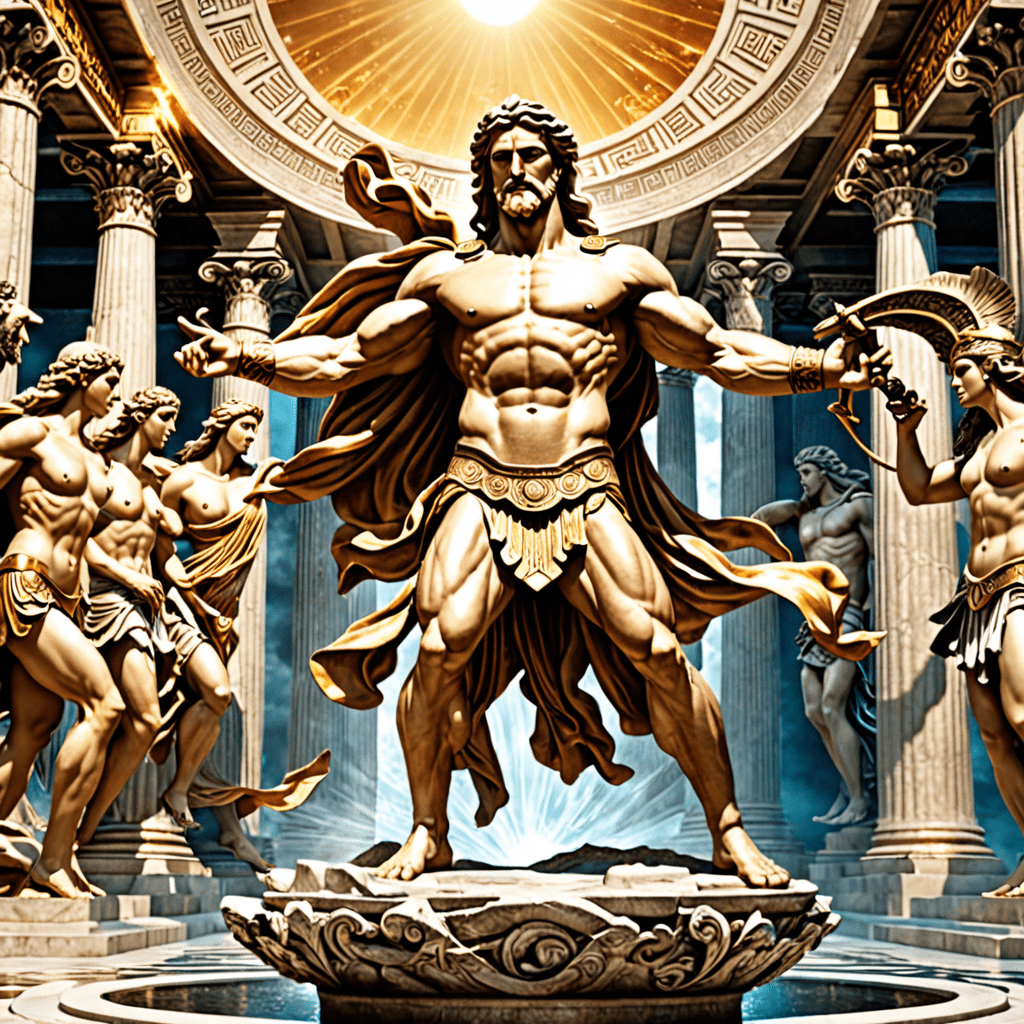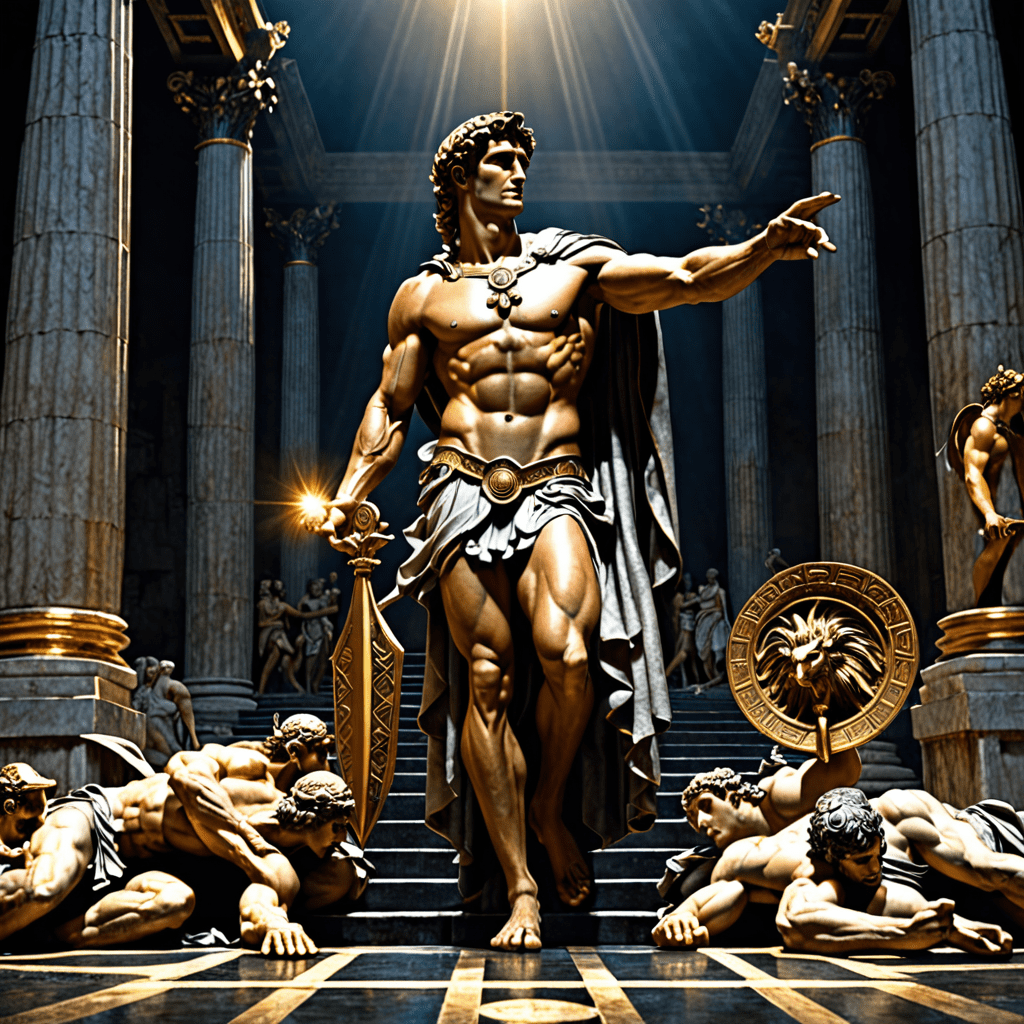The Prophecies of the Ancient Greeks: What Lies Ahead?
I. Introduction to Ancient Greek Prophecies
In the ancient world, prophecies held a significant place within the cultural and spiritual fabric of society. Ancient Greek prophecies, in particular, were considered not merely predictions but divine messages that could influence the course of human events. These prophecies were often delivered through oracles, seers, and various forms of divination, reflecting the people’s beliefs about fate and the will of the gods.
This article aims to explore the rich history of ancient Greek prophecies, their impact on society, and their relevance in today’s world. By delving into the roles of oracles, notable prophetic figures, and the philosophical implications of these predictions, we can gain a deeper understanding of how ancient prophecies resonate with contemporary issues.
II. The Role of Oracles in Ancient Greece
Oracles were central to the practice of prophecy in ancient Greece. They served as intermediaries between the divine and humanity, offering insights into the future through various methods of divination.
A. The most famous oracles: Delphi, Dodona, and others
- Delphi: The most renowned oracle, dedicated to Apollo, where the priestess Pythia delivered cryptic messages.
- Dodona: Known for its oracle of Zeus, where priests interpreted the rustling of oak leaves.
- Other oracles: Included the Oracle of Ammon, the Oracle of Trophonius, and the Sibyls, each with unique methods and significance.
B. Methods of divination used by oracles
Oracles employed various methods to divine the future, including:
- Incubation: Sleeping in a sacred place to receive dreams or visions.
- Divination by lots: Using sacred objects to determine the will of the gods.
- Reading omens: Observing natural phenomena, such as the behavior of birds or the entrails of sacrificed animals.
C. The societal and political impact of oracle prophecies
Oracle prophecies often had profound effects on Greek society and politics. Leaders and citizens alike sought guidance from oracles before making significant decisions, such as:
- Going to war
- Establishing colonies
- Making political alliances
The influence of oracles extended to every aspect of life, with their proclamations shaping both public policy and personal choices.
III. Key Prophecies and Their Historical Context
Many notable prophecies have emerged from the oracles of ancient Greece, with some leaving a lasting impact on history.
A. The Oracle of Delphi and its famous prophecies
The Oracle of Delphi is perhaps the most famous, with prophecies that guided leaders and shaped events. Notable examples include:
- The warning to Croesus that he would destroy a great empire, which he interpreted as a sign of victory over Cyrus of Persia but ultimately led to his downfall.
- The prophecy given to the Athenians before the battle of Salamis, which predicted their victory.
B. The Sibylline Books and their influence on Roman and Greek thought
The Sibylline Books, a collection of prophetic texts, were consulted during times of crisis and had a significant influence on both Greek and Roman culture. Their prophecies often addressed themes of disaster and renewal, echoing the cyclical nature of human history.
C. Notable prophecies that shaped historical events
Various prophecies have had tangible effects on the course of history. For instance, the prophecy concerning the fall of Troy and the role of the Trojan Horse is a well-known example, demonstrating how prophetic insights can intertwine with myth and historical events.
IV. The Interpretation of Prophecies
The interpretation of prophecies was as crucial as the prophecies themselves. Different schools of thought emerged, each offering unique perspectives on meaning and significance.
A. Different schools of thought on prophetic interpretation
- The rationalists, who sought logical explanations for prophecies.
- The traditionalists, who adhered to established interpretations passed down through generations.
- The mystics, who believed that prophecies contained hidden truths accessible only through spiritual insight.
B. The role of ambiguity and symbolism in prophecies
Many prophecies were deliberately ambiguous, allowing for a wide range of interpretations. This symbolism often led to various readings, depending on the context and the interpreter’s perspective.
C. Case studies: how interpretations varied across time and regions
Interpretations of the same prophecy could differ significantly over time and between regions. For example, the prophecy of the fall of Troy was interpreted differently by various Greek city-states, each infusing their cultural context into the meaning.
V. Major Prophetic Figures in Greek Mythology
Greek mythology features several key figures known for their prophetic abilities, each embodying different aspects of foresight and divine communication.
A. Cassandra: the curse of foresight
Cassandra, the daughter of Priam, was granted the gift of prophecy by Apollo but cursed to never be believed. Her tragic fate embodies the theme of unrecognized truth and the consequences of ignoring prophetic warnings.
B. Tiresias: the blind seer and his insights
Tiresias, a blind prophet, possessed the ability to see the truth beyond appearances. His insights often revealed deeper realities, demonstrating how blindness can sometimes lead to greater vision.
C. Other notable figures and their contributions to Greek prophecy
Other significant figures included the Sibyls and various minor oracles, each contributing to the rich tapestry of Greek prophetic tradition.
VI. The Intersection of Prophecy and Philosophy
The relationship between prophecy and philosophy in ancient Greece reveals complex views on fate, free will, and the nature of knowledge.
A. Philosophical views on fate and free will in ancient Greece
Many philosophers debated the implications of prophecy on free will. They pondered whether knowing the future could alter one’s choices or if fate was predetermined.
B. How philosophers like Socrates and Plato viewed prophecies
Socrates often emphasized the importance of self-knowledge and rational thought over reliance on oracles. Plato, on the other hand, explored the role of the divine in human affairs, suggesting that prophecies could serve as guides toward the good.
C. The lasting impact of these discussions on modern thought
The debates surrounding prophecy, fate, and free will continue to resonate in modern philosophical discussions, influencing contemporary views on determinism and agency.
VII. Prophecies of Catastrophe and Renewal
Many ancient Greek prophecies addressed themes of disaster, societal collapse, and the potential for renewal.
A. Prophecies concerning wars, disasters, and societal collapse
Oracles often predicted calamities, such as wars and plagues, warning societies to heed the signs and take action to avert crisis.
B. Themes of rebirth and renewal in Greek prophecy
Conversely, many prophecies also spoke of renewal and rebirth, suggesting that from destruction could rise new life and hope.
C. Modern parallels: how ancient prophecies resonate with contemporary issues
Today’s world faces numerous challenges, and the themes found in ancient Greek prophecy—warnings of catastrophe followed by the promise of renewal—echo in contemporary discussions about climate change, political upheaval, and societal transformation.
VIII. Prophecies in Modern Context
The fascination with ancient prophecies has seen a resurgence in recent years, as many seek wisdom from the past to navigate an uncertain future.
A. The resurgence of interest in ancient prophecies
From literature to academia, ancient Greek prophecies are being revisited and reinterpreted, highlighting their timeless relevance.
B. How ancient Greek prophecies are interpreted today
Modern interpretations often focus on the philosophical and psychological dimensions of prophecy, examining how these ancient insights can inform contemporary life.
C. Prophecies in literature, film, and popular culture
Many contemporary works of literature and film draw upon themes of prophecy, fate, and foreknowledge, reflecting society’s ongoing engagement with these ancient ideas.
IX. Skepticism and Critique of Prophetic Traditions
Despite the historical




